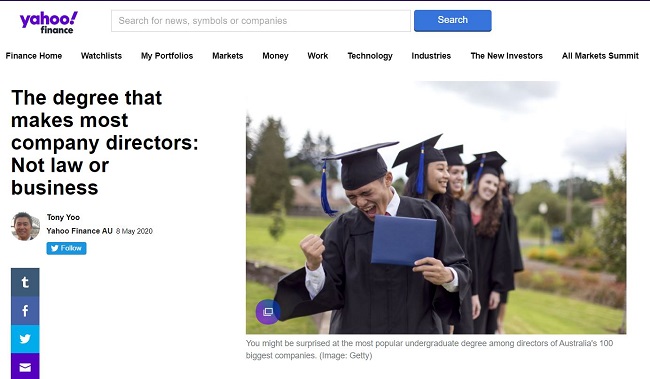by Irina Kamychnikova
December 16, 2019
Digital and social media
Can you believe Facebook launched 10 years ago? Twitter started 13 years ago, AND it’s already been nine years of Instagram. I’m not even going to mention how old Myspace is…
…Okay, Myspace just turned 16 YEARS OLD!
As you sit back in your seat, reminiscing over what the world was like 16 years ago, before likes, loves, laughs and follows took over, take a moment to have a think about how far we have come with this phenomenon that is uniting people globally.
While most Australian businesses have some form of social media presence, many have taken a ‘finger to the wind’ approach in choosing platforms and creating posts.
Today, almost half of the global population is using social media to connect with each other and the brands they love. Approximately 90% of US companies use social media for marketing purposes. And there is a solid argument for doing so. It is a fast, inexpensive and effective way to reach your audience, as well as engaging with your customers, improving your SEO, driving traffic to your website, attracting new clientele and increasing your brand profile.
However, before you jump online and start creating every social media page under the sun, from Facebook to Twitter, Instagram, LinkedIn and TikTok, STOP…
A social presence requires a social strategy – make sure you lay the foundations first and build your strategy to align with your business objectives and values.
Top eight tips for social media success
1. Be prepared and have a plan
Failing to plan is planning to fail! Before you open a social media account for your business, ask yourself the following questions:
- What resources do I have to invest in this?
- Who is my target audience?
- How do I know this is the best platform on which to reach them?
- What days, times and frequency should I post to maximise my return on investment (ROI) and engage with existing and potential customers?
- Who will manage the account/s?
- What is the escalation plan should a crisis hit?
Ensuring you have a robust plan in place, outlining your social policy, risk mitigation strategies and understanding the audience you are trying to reach are crucial to building a successful social media program.
2. Start with one platform and do it well
Let’s be honest, social media takes time and TLC, especially at the beginning. Managing multiple accounts is tiresome, time consuming and resource intensive. It may also be a complete waste of time.
If you know your audience, who they are and how they like to spend their time, deciding which platform to use will be a no-brainer.
Rather than struggling to keep up with multiple platforms, you are best to begin with one channel and ensure it is working well, with good levels of engagement, moderation and conversions to your website.
You don’t need to be on every channel to be successful with social media.
3. Be authentic
Social media is an opportunity for you (and your business) to be conversational, approachable and engaging. It’s an opportunity for you to engage with real people who value your brand and for them to have access to you. Have fun with the channel but be true to your values and you will present as credible, honest and approachable.
Staying true to your brand values will keep your current followers happy and help you attract new ones. Regardless of the platform, just be you and post on topics that genuinely interest you.
4. Engage
If you’re opening a social media channel, make sure you have an appetite to engage. The main goals of social media are to build relationships and encourage two-way communication. However, this is often where businesses fail. They work hard to create content but fail to engage with their audience. This is a missed opportunity to strengthen relationships with your customers. To ensure success, and increase your online “voice”, engage. Allocate resources to like posts and comments, comment on conversations related to you or your industry, respond to tags and conversations. People who are engaged with social channels – and use them well – are more likely to be seen as open and accessible, transparent and trustworthy.
5. Create interesting content and stand out
Map out a content plan so that your communication goals are helping to achieve your business goals. Then create interesting content that is driving your audience to do something – connect with a website, register to an event or shop online.
Use strong and interesting images or videos for every post. It can increase your audience’s engagement, attract more likes, views and click-throughs.
On Facebook, video is the best performing content accounting for 100 million hours of watched content daily. Tweets with images are 150% more likely to get retweets than tweets without images.
Ensure images and videos are a part of your content plan. It will help you stand out and get noticed.
6. Be a (thought) leader
Your social media channel is a platform for your business to have an opinion on certain issues. Take advantage of this and steer and generate content that leans into the “hot” news topics and carves a path for you to provide your well-informed opinion on the matter. When done successfully, you will establish yourself as the go-to experts, with others turning to you for your advice and innovative thinking.
7. Monitor
There is no excuse not to monitor your social media account/s. It is as important as actually having them! Whether you do it manually or adopt an online monitoring tool, being across what people are saying to you and about you is critical in growing your brand and managing risk.
You should be monitoring comments, sentiments, tags and industry related discussions. This will help you stay connected with your community, increase engagement and manage your reputation. Remember, it can take a while to build your online community but only a few comments can cause significant reputational damage.
8. Be Accountable
In 2017, Adidas sent an email to those who completed the Boston Marathon with the subject line “Congrats, you survived the Boston Marathon!”
The company quickly copped a lot of backlash from the public for being insensitive and disrespecting the survivors of the 2013 Boston Marathon where a terrorist attack affected hundreds of people. Adidas quickly issued an apology across their social platforms apologising for their mistake.
The lesson? If you make a mistake, own up quickly. Adidas’ quick public apology and continued engagement with its customers and the public limited reputation damage, making it easier to restore trust.
Social media has come a long way and has a long way to grow. When you do it well, the opportunities are endless.
Find out more
Please contact Irina Kamychnikova at Apollo Communications if you would like to discuss how social media can be beneficial to your business.
NEWS AND MEDIA

Freedom is anchored to a free press
Yesterda...
Measure and manage your Corporate Reputation

Suite 94 | Jones Bay Wharf
26-32 Pirrama Road
Pyrmont NSW Australia 2009




